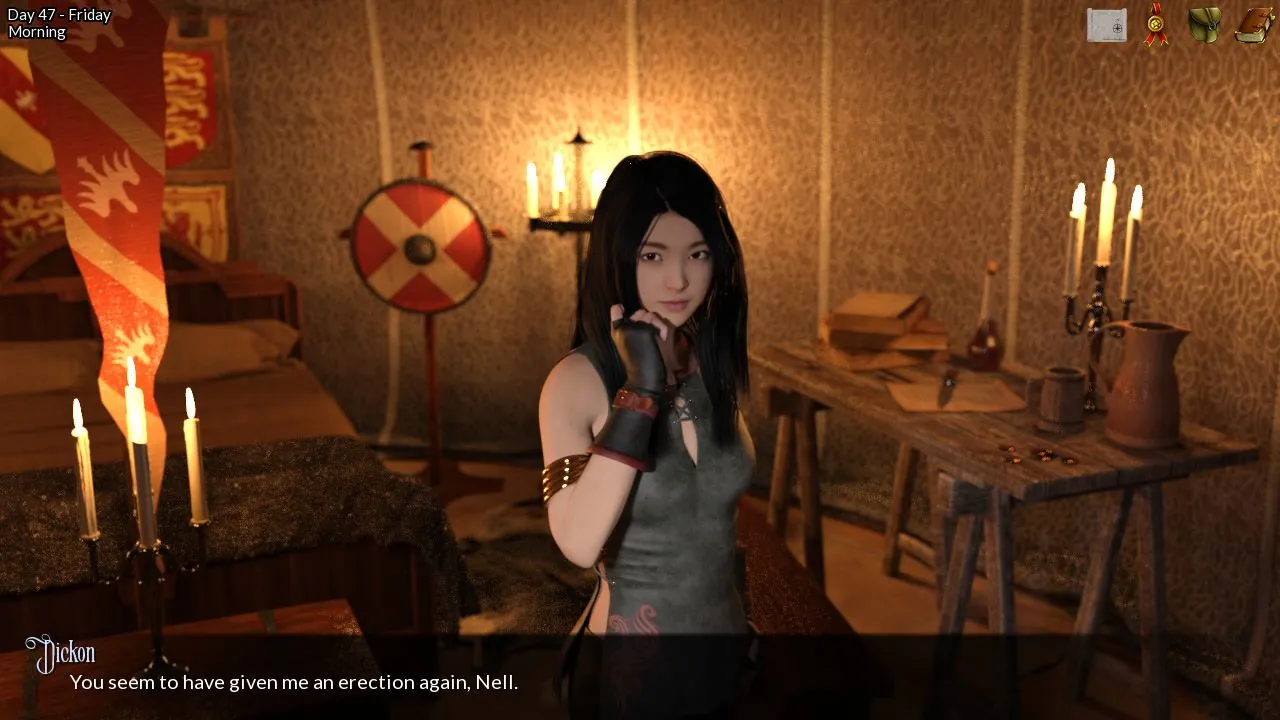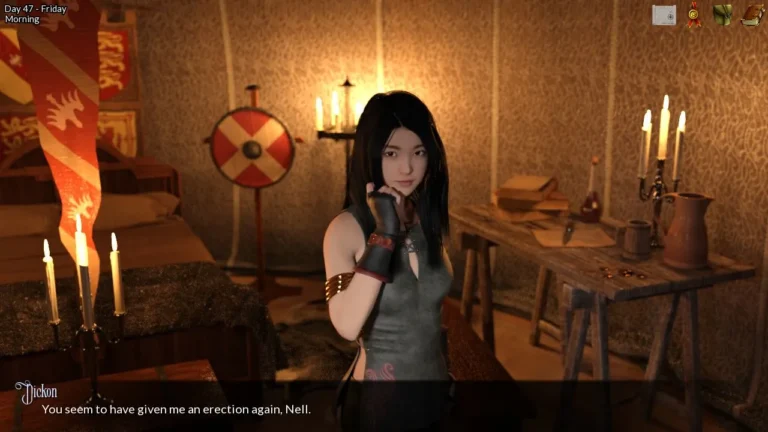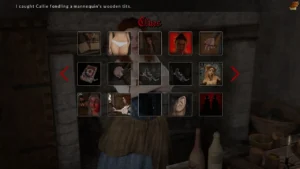
Long Live the Princess
Play Long Live the Princess
Long Live the Princess review
How This Fantasy Visual Novel Balances Narrative Depth With Adult Themes
Long Live the Princess has garnered attention for its unique blend of fantasy storytelling and mature character interactions. This visual novel challenges players to solve political intrigues while navigating complex relationships in a magical kingdom. Through its choice-driven design, the game creates a delicate balance between narrative progression and adult-oriented scenarios that test players’ decision-making skills.
Gameplay Mechanics and Narrative Integration
Choice-Driven Character Development System
Let’s cut to the chase: Long Live the Princess isn’t your grandma’s visual novel. 🎮💥 While most games in the genre let you click through dialogue like a sleepy commuter scrolling TikTok, this one grabs you by the collar and says “pay attention—your choices matter here.” The character relationship system isn’t just about picking flirty lines or polite nods. It’s a high-stakes balancing act where every conversation could crack open new story branches—or slam doors shut forever.
Take my first playthrough, for example. I thought I’d be slick, boosting my “Courage” stat early to intimidate a shady bartender. Big mistake. Turns out, that same boldness later made me overconfident during a royal negotiation, accidentally accusing the queen’s favorite advisor of treason. 💔⚖️ The game’s interactive storytelling doesn’t just react to your stats—it weaponizes them.
Here’s the kicker: your skills grow based on how you use them. Want to master persuasion? You’d better pick persuasive dialogue options consistently. But here’s the twist—pumping points into “Perversity” (yes, that’s a real stat) might unlock raunchy shortcuts in conversations, but it’ll also paint you as a creep to certain characters. 🕵️♂️🚫 The game forces you to live with these contradictions, making the dialogue choice impact feel brutally personal.
| Stat | Threshold | Narrative Effect |
|---|---|---|
| Courage | ≥ 7 | Unlocks defiance against authority figures |
| Perversity | ≥ 5 | Triggers risque subplots with certain NPCs |
| Empathy | ≥ 6 | Reveals hidden character motivations |
Stat Management and Story Consequences
Imagine juggling chainsaws while riding a unicycle. 🔪🤹♂️ That’s what managing stats in Long Live the Princess feels like—thrilling, dangerous, and very easy to mess up. The stat-based narrative ties every percentage point to tangible consequences. Let’s break it down:
Your “Courage” and “Perversity” meters aren’t just numbers—they’re narrative landmines. Early on, you’ll face a choice: comfort a grieving widow or exploit her vulnerability. I chose the latter, thinking it’d give me political leverage. Instead, it tanked my empathy stat, locking me out of a crucial alliance two chapters later. 🚪🔒 The game remembers everything, and its player agency is more about long-term strategy than quick wins.
Time management is another silent killer. 🕰️💣 You’ve got limited days to solve the central mystery, and every action burns daylight. Spend too long flirting at the tavern? Congrats—you’ll miss the secret midnight meeting that exposes the assassin’s plot. The game’s interactive storytelling thrives on these trade-offs, forcing you to prioritize between relationships, clues, and survival.
Pro tip: Save before confronting Lady Elara in Chapter 3. One wrong stat check there can soft-lock you into a disastrous ending.
Branching Narrative Paths Analysis
Here’s where Long Live the Princess flexes its narrative muscles. 💪📖 The game doesn’t have “good” or “bad” endings—it has your endings, shaped by a web of decisions most players won’t even notice they’re making. Let’s geek out over the branching narrative paths:
In Chapter 2, you’ll investigate a murder at the masquerade ball. 🎭🩸 Choosing to trust the timid maid over the cocky noble might seem minor, but here’s the ripple effect:
– The maid’s info leads to uncovering a blackmail plot
– The noble, if alienated, sabotages your court reputation
– Both paths reveal different pieces of the overarching conspiracy
This isn’t just “illusion of choice” territory. The game’s character relationship system tracks affinity scores in real time, with NPCs reacting to your reputation. I replayed the ball scene three times and got wildly different outcomes:
1. Accused of the murder (low empathy)
2. Became the queen’s lover (high perversity)
3. Uncovered the true killer (balanced stats)
The dialogue choice impact here is staggering. Even small decisions, like laughing at a dark joke or refusing a drink, can alter how characters perceive you. 🥃👀 During the siege of Castle Vorn, my maxed-out courage stat let me rally troops—but my low empathy meant I couldn’t console a dying ally, costing me their faction’s support in the finale.
Player agency in Long Live the Princess isn’t about power fantasies. It’s about living with the mess you create—and trust me, you will create messes. 🧩🔥 Whether you’re manipulating court politics or navigating steamy romance subplots, every % stat boost and conversational gambit feeds back into the story’s DNA.
So, ready to lose sleep over a visual novel? 💤🗡️ Grab your save files and dive in—just don’t blame us when you’re still replaying Chapter 5 at 3 AM, chasing that “perfect” ending that doesn’t exist.
Long Live the Princess demonstrates how mature themes can enhance character-driven storytelling when integrated purposefully. While its content requires thoughtful engagement, the game’s emphasis on player agency creates memorable narrative experiences. For those interested in fantasy visual novels with complex decision-making, consider exploring the game’s customizable content options to tailor your experience.
















